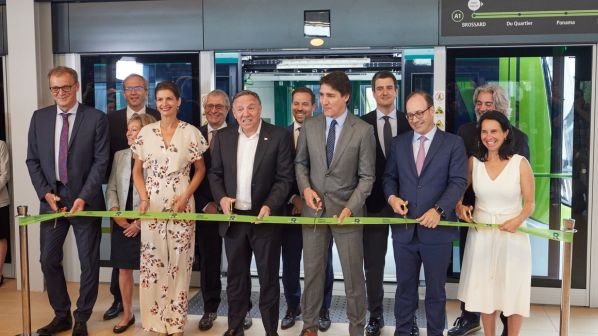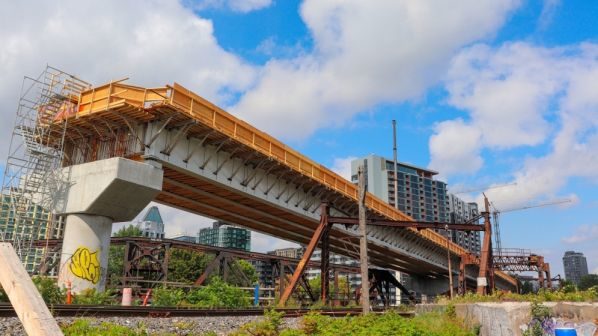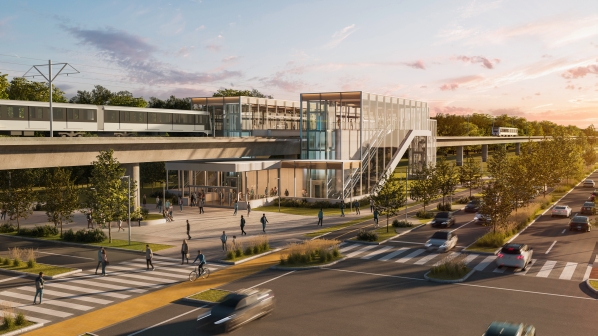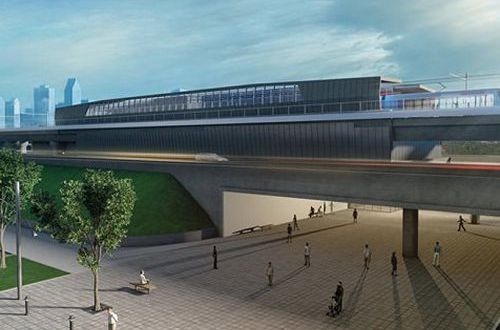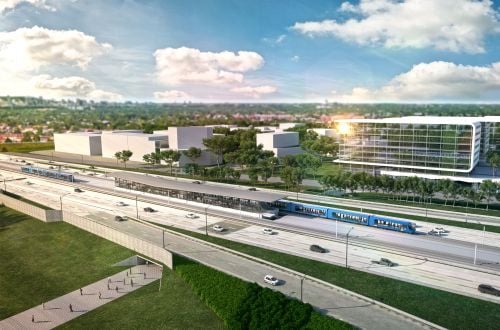SERVICES have begun on the first 17km segment of Montreal’s Metropolitan Express Network (REM), a new automated light metro connecting Brossard on the city’s South Shore with Central station.
An inauguration ceremony for the Brossard - Central station section was held on July 28, with full commercial operation beginning on July 31.
At 67km long with 26 stations when fully complete, REM will be one of the world's largest automated metro networks, connecting central Montreal to the South Shore, the North Shore, West Island and Pierre Elliott Trudeau International Airport.
Quebec's major public pension fund, Caisse de dépôt et placement du Québec (CDPQ), announced in April 2016 that it would undertake construction and operation of the network via its subsidiary CDPQ Infra. Trains will operate at intervals of 3 min and 45 sec during peak hours and operate 20 hours a day.
CDPQ Infra awarded the Groupe PMM consortium of Alstom and SNC-Lavalin a contract to supply 106 two-car Metropolis metro trains, Alstom Urbalis CBTC for operation at Grade of Automation 4 (GoA4), and an Iconis control centre system, as well as platform screen doors, Wi-Fi, cybersecurity systems and depot equipment, and to undertake operation and maintenance over 30 years, including predictive maintenance and fleet management using Alstom’s HealthHub system. Groupe PMM is also responsible for train and system integration tests.
The first 17km section between Brossard and Montreal’s Central station has five stations all equipped with platform screen doors, a first in Quebec.
The inauguration ceremony was attended by the prime minister of Canada, Mr Justin Trudeau; premier of Quebec, Mr François Legault; mayor of Montreal, Ms Valérie Plante; president and CEO of CDPQ, Mr Charles Émond; CEO of CDPQ Infra, Mr Jean-Marc Arbaud; chairman and CEO of Alstom, Mr Henri Poupart-Lafarge; president of the Americas region for Alstom, Mr Michael Keroullé; and director of the Groupe PMM consortium, Mr Jean-Michel Morvan.
“This is the first phase of a network that will transform sustainable mobility, act as catalyst for the development of new communities in Greater Montreal and have a significant economic impact on Quebec as a whole,” Emond says. “Led by the team at CDPQ Infra, alongside our partners, this has been a tremendous collaborative effort and we are thrilled to launch a world-class automated metro system that will benefit the people of Quebec for generations to come.”
For detailed data on urban rail projects around the world, subscribe to IRJ Pro.
